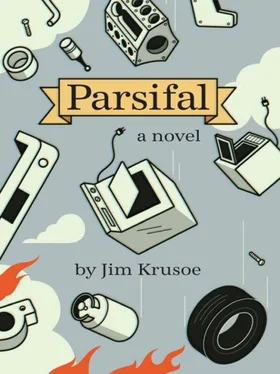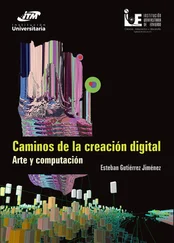It didn’t, and Parsifal concludes his story by telling how his attorney, Walter, had a good chuckle. “You can thank that stain for getting you off,” he told Parsifal when he took him to lunch following the verdict. “I should buy that guy a whole box of pens and see if he’ll use them at every trial.”
This was before Parsifal got into the business.
When Parsifal first came to the city, he began to know people in the following way: he would find a popular event — a theater opening or a sporting match or even a movie — and join the long line to buy tickets. While he was in the line, he listened quietly to the conversations around him. Sometimes he would let people cut in ahead of him, telling them he was waiting for some friends to arrive. No one bothered him or asked him any questions. Then, when he finally reached the ticket window, he would pretend he had forgotten something — usually his wallet — or that he had left a pan heating on the stove, and leave. “I’d hate to have my house burn down,” he’d tell the person standing in line behind him.
In this way he furthered his education in the ways of city people and gained knowledge that served him well in those weeks before he discovered how helpful librarians could be.
The sky had cleared to a brilliant blue, but there was no trace of the bird that had been overhead.
What does it mean to be blind? It means not to see, of course. That time, in the crawl space beneath the Happy Bunny it was cold and dark, and the only way to see and to keep warm at the same time was to set a fire.
Parsifal walked. He listened. He felt the stone rub against the doorknob in his pocket, but he did not hear either Misty or her friends.
What is this obsession with blindness that creeps into the heart?
It was only a few days after his encounter with the first blind man that Parsifal met another one. This second blind man was very tall and elegantly dressed, and standing at a stoplight listening — Parsifal understands now — for the sound of traffic to die away so he could cross the street. This blind man had neither a guide dog nor a white cane, and the only thing that might have indicated his disability was the pair of dark glasses that Parsifal believed at first was there simply to protect the man’s eyes from the sun, for in those days he knew little about blindness.
“Excuse me,” Parsifal asked him, “have you by any chance seen my father?” He then began to describe Conrad, and the more he did, the more the man began to chuckle, until at the end, when Parsifal got to the part about how Conrad was upset by certain shades of yellow — not all of them, he explained — the man was holding his stomach and laughing so hard that various passersby slowed their pace to look at the two of them.
Then the man said, “My son, I haven’t seen anything for over twenty years, ever since, as a young man of about your age — if I judge the sound of your voice correctly — I wasn’t paying attention to where I was going and stepped straight into a pit dug by a crew working on some pipes that ran under the sidewalk. I hit my head on a plank and woke up in the hospital, unable to see. So I hope you will excuse me if I’m having a laugh at this moment, even if it’s at my own expense, over the fact that you’re asking me if I have seen your father. Ha, ha, ha, ha.”
Parsifal thanked him, and soon afterward he stopped asking that question of strangers.
How many days had Parsifal been in the forest? Two? Three? Four? Time was doing funny things, and he was beginning to lose track, but honestly, that didn’t bother him. According to The Old Trapper’s Guide to Wood-Craft , one of the secrets of survival was to change from “city time” to what it called “wild time.” Accordingly, Parsifal came to the resolution that he would go on searching for Fenjewla as long as he possibly could, but if he had to stop before he achieved his goal, that was all right too, because he would return to the city knowing he had done all that he was able.
For that matter, he could always return and try again later, and maybe bring a compass and a metal detector the next time, so that leaving the forest on this trip without finding Fenjewla would not really bother him all that much. What did bother him — troubled him, he supposed, like something that had been resting in the back of his mind the whole time he was in the forest, walking and sleeping and zigzagging and whatnot — was that not once had he ever actually encountered one of the forest’s edges — some place where the trees ended and a person could look out and see a distant steeple, or peer through a screen of blackberry bushes at a family in their backyard as they prepared their barbecue.
It wasn’t a huge deal, but as he said, this thought regarding the forest’s absence of boundaries was pretty much there in some form every minute.
Along with the panic.
Along with Misty.
The last time Parsifal saw Joe, Joe was wearing what Parsifal believed were called “cargo shorts”—shorts, in any case, with lots of pockets — and a yellow Hawaiian shirt with purple parrots and green palm trees.
“You know,” he said as soon as Parsifal sat down, “you’ve come a long way from the mess you were when I first began seeing you, and I must say I’ve enjoyed our conversations. It’s seldom I find a patient so unusual, so stimulating, so able to dredge up details of a past as unique as yours. That’s why I’m feeling sad to tell you I think it’s time we called it quits, not only because the funds for your treatment allotted to me by the state have run out, but also because over the past few sessions”—and here he consulted his yellow pad—“this transference thing seems to be getting a whole lot stronger.”
Parsifal, totally unprepared for what he’d just heard, remained temporarily frozen, and could only stare at the picture hanging on the wall of Joe’s office, one he’d never really looked at before. It depicted a room in one of those early, primitive mental-health institutions in which several lightly clad female patients were being sprayed by fire hoses directed by brutal attendants. The women looked justifiably angry, even as the thinness of their garments, clinging as they were to their lush bodies, made them, if anything, more attractive than ever.
“Once again, I repeat, I don’t exactly see how that could be the case,” Parsifal answered, “because at least insofar as your respective styles of dressing are concerned, you and my father are complete opposites. You are casual to the point of being slovenly, while my father was formal to the point of being fastidious. As a person you are open and interested in long conversations centered around my feelings, while my father wanted to hear nothing about how I felt, but took pride only in teaching me the principles of bookkeeping. Your face is hairy and my father’s was smooth-shaven. My father, for all of the sedentary work he did in the city, managed to stay in remarkably good physical shape, and was capable of carrying over his shoulder for miles a heavy sack of peanuts or dried beans, not to mention bags of extra stuff tied to his belt at his waist. In your case, while I understand that criminal psychiatry is pretty much of a sedentary occupation, you appear to have succumbed to it completely and, considering your diet, which seems to be mostly coffee, donuts, and Chinese takeout, I’d say it’s remarkable that you’re alive at all.”
Joe wrote a line or two on his pad. “It seems to me I’m detecting some hostility here. I understand where you are coming from, Parsifal. And without years of intense psychological study most people would find it nearly impossible to believe that it is in precisely such cases, where the psyche is able to trick itself into believing that there is no connection whatsoever, that the transference issue I am speaking of most easily takes place.”
Читать дальше












